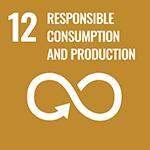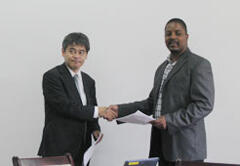Sustainable Jatropha Biofuel Production in Mozambique
Principal Investigator
ODA Recipient Country
Republic of Mozambique
Research Institutions in Japan
The University of Tokyo / Kanazawa Institute of Technology (K.I.T.) / Kurume University
Research Institutions in Counterpart Country
Eduardo Mondlane University (UEM), etc.
Adoption fiscal year
FY 2010
Research Period
5 Years
Overview of the Research Project
Enriching the people and forests of Mozambique through biodiesel fuel production
In this project, biodiesel fuel plants will be cultivated in the arid regions in southern Mozambique that are not suitable for crop cultivation, in an effort to reduce CO2 emissions, improve the lives of local residents through the creation of industry and so on. At the same time, the solid fuels that are produced as a byproduct will be made available for use in place of the firewood and charcoal that are currently major sources of fuel in Mozambique, thereby reducing tree cutting and preventing deforestation. This is an effort to build a sustainable production system by ensuring both economic viability and a positive environmental impact.
Helping to improve the environment through the cultivation of Jatropha
The project is studying the breeding of varieties of Jatropha, a biodiesel fuel suitable for cultivation in arid regions, as well as cultivation methods that are low-risk with regard to climate change. Technologies for inspecting the quality and safety of the manufactured fuel are also being developed. The project is being conducted with a view to future industrialization of fuel production and deploying the approach to other countries in Africa.
Photo gallery
Research Project Web site
Press Release
Links
Projects
Contact Us
Japan Science and Technology Agency (JST)
Department of International Affairs
SATREPS Group
TEL : +81-3-5214-8085
Related articles by Category
- Carbon Neutrality
Environment / Energy
(Carbon Neutrality)
 Kingdom of Cambodia
Kingdom of Cambodia
Using water management to reduce methane emissions from rice paddies!
Development and Social Implementation of Greenhouse Gas Emission Reduction Technologies in Paddy Fields of West Tonle Sap Lake by Establishing a Large Paddy Area Water Management System
- Africa
Environment / Energy
(Global-scale environmental issues)
 Arab Republic of Egypt
Arab Republic of Egypt
Contributing to the reduction of marine plastic litter and the establishment of a circular economy!
Utilization of Agricultural Wastes for Plastic Alternatives Productions to Establish a Circular Economy
- SDGs : Goal.13
Environment / Energy
(Carbon Neutrality)
 Republic of Indonesia
Republic of Indonesia
Healthy people, healthy world: Transforming CO2 with microalgae
Integrated Sustainable Energy and Food Production from Microalgae-based Carbon Capture and Utilization






 Republic of Mozambique
Republic of Mozambique















